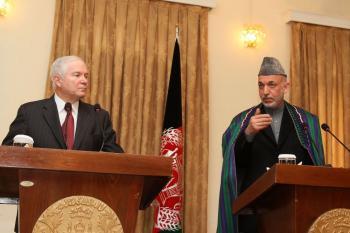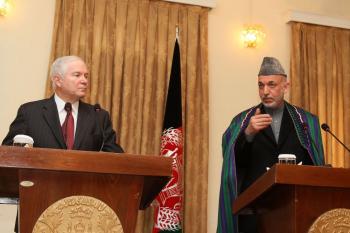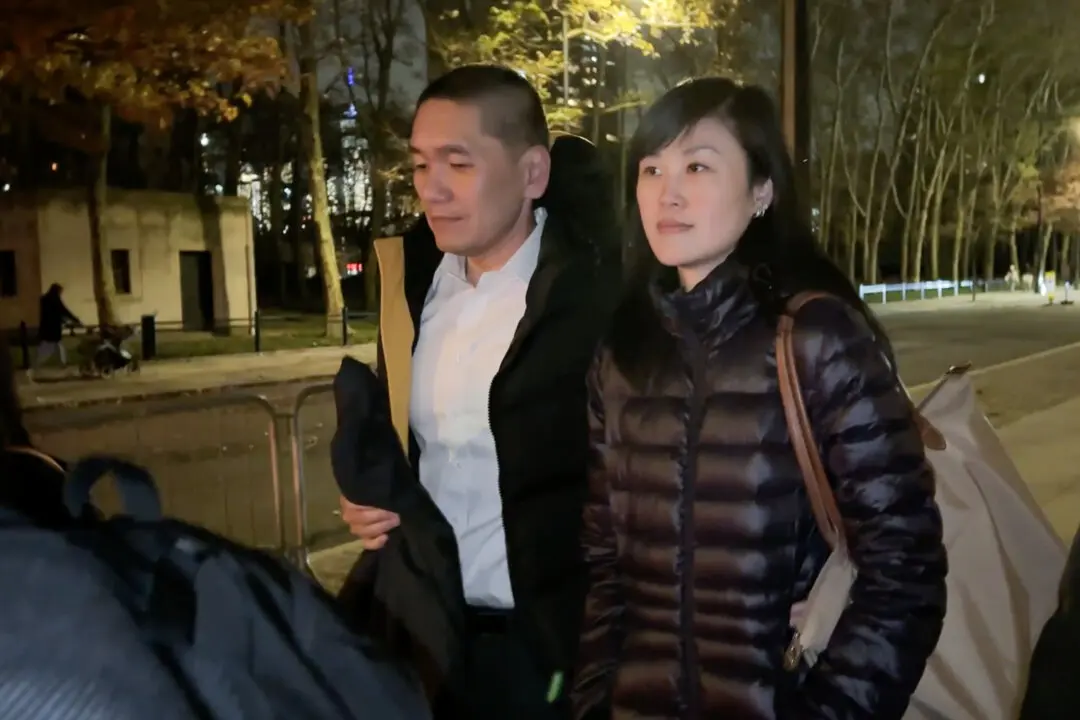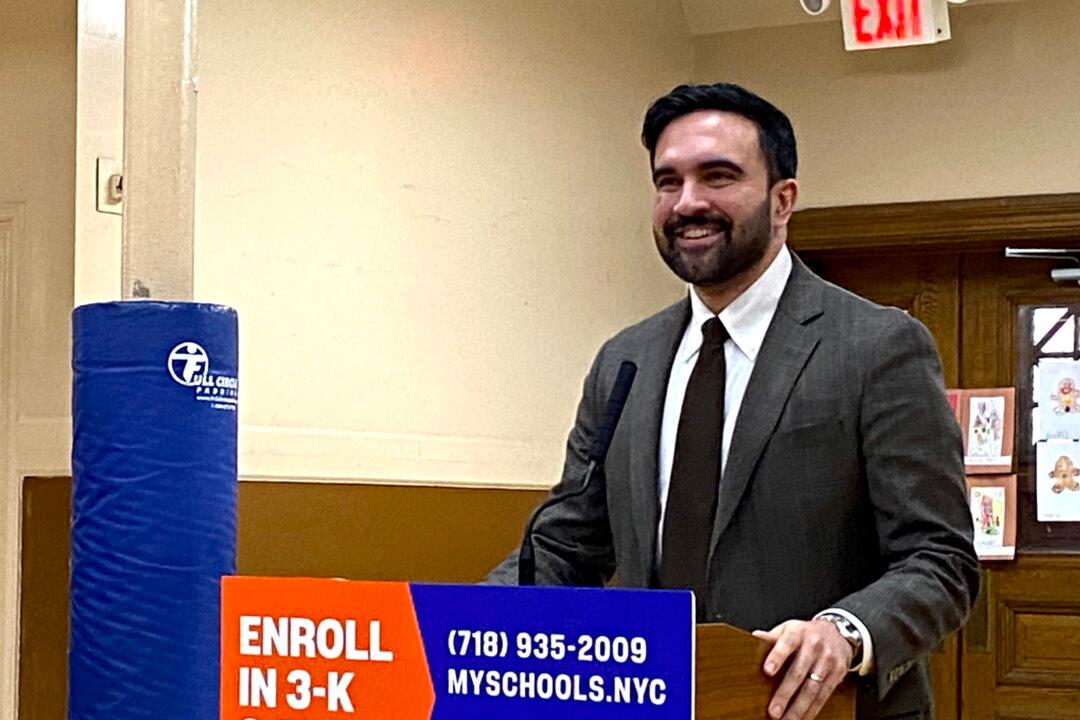Defense Secretary Gates Meets With Afghan President
Defense Secretary Robert Gates arrived in Afghanistan on Tuesday to meet with Afghan President Hamid Karzai.
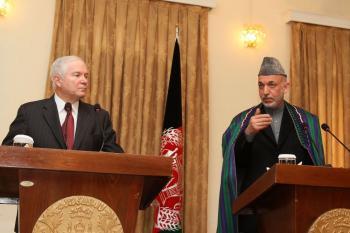
Afghan President Hamid Karzai (R) gestures during a press conference with U.S. Secretary of Defense Robert Gates at the Presidential Palace Dec. 8, in Kabul, Afghanistan. Secretary Gates is embarking on a weeklong trip to Afghanistan one week after U.S. P Justin Sullivan/Getty Images
|Updated:

